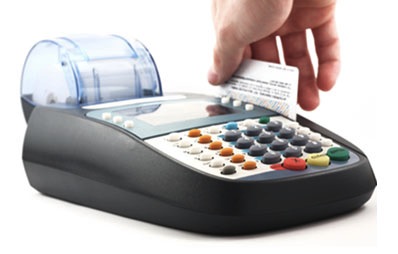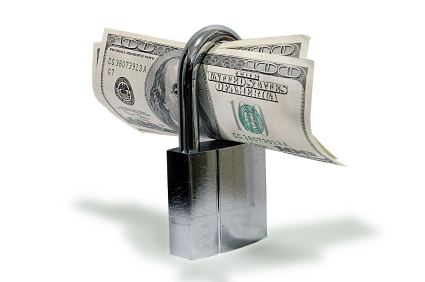Interview with The iPayDNA Team
 iPayDNA is a payment processing company that stands for more than just processing payments; they also want to excel in the overall way in which they do business, and aren’t afraid to try out new technologies and payment methods. Andy Tan and the rest of the management team of iPayDNA care a lot about their employees and growing their business further with the full support from their team. The fact that they decided to do this interview with us with the whole team is the perfect proof that this is a company with nothing but teamplayers.
iPayDNA is a payment processing company that stands for more than just processing payments; they also want to excel in the overall way in which they do business, and aren’t afraid to try out new technologies and payment methods. Andy Tan and the rest of the management team of iPayDNA care a lot about their employees and growing their business further with the full support from their team. The fact that they decided to do this interview with us with the whole team is the perfect proof that this is a company with nothing but teamplayers.
We prioritize on targeting high-risk businesses such as pharmacy, replica, tobacco, MP3 and forex. These industries generate more revenue for us than general e-commerce business. At the same time, we are also targeting general e-commerce businesses to increase our processing volume.
How has your company evolved over the last few months? – Allan, Merchant Acquiring SpecialistOur company has seen big improvement on processing volumes over the past 6 months, and we are still growing and improving our processing volume on a monthly basis. We are (more…)

 Dharma Merchant Services is a company that works personally with business owners, whether for profit or non-profit, ensuring that they have all of the tools necessary to accept credit card and other payments. Additionally, since non-profits hold a unique place, lower processing fees and other benefits are available. Given that Dharma Merchant Services is a business that’s dedicated to being ethical and green, those sorts of goals fit admirably with non-profits looking for a principled partner.
Dharma Merchant Services is a company that works personally with business owners, whether for profit or non-profit, ensuring that they have all of the tools necessary to accept credit card and other payments. Additionally, since non-profits hold a unique place, lower processing fees and other benefits are available. Given that Dharma Merchant Services is a business that’s dedicated to being ethical and green, those sorts of goals fit admirably with non-profits looking for a principled partner.  Just because a business is a non-profit, doesn’t mean that they don’t need the ability to handle money. For instance, many non-profits run retail stores, where the money earned goes to fund programs in the organization. If that’s the case then the business needs to have the capacity to
Just because a business is a non-profit, doesn’t mean that they don’t need the ability to handle money. For instance, many non-profits run retail stores, where the money earned goes to fund programs in the organization. If that’s the case then the business needs to have the capacity to  Running an ebusiness means a lot of work, little free time and many different problems to cope with. Quite often online payments turn out to be one of most difficult issues for merchants. And this cannot be avoided if you want to sell anything – allowing to make a payment is obviously a must. Additionally, merchants may get confused when choosing a payment processor, because many tend to present the subject differently. This is a result of the subject’s complicity – payment processors want to simplify it for merchants, but they usually do this differently.
Running an ebusiness means a lot of work, little free time and many different problems to cope with. Quite often online payments turn out to be one of most difficult issues for merchants. And this cannot be avoided if you want to sell anything – allowing to make a payment is obviously a must. Additionally, merchants may get confused when choosing a payment processor, because many tend to present the subject differently. This is a result of the subject’s complicity – payment processors want to simplify it for merchants, but they usually do this differently.  A merchant account service provides their clients with all of the tools and technologies for them to accept credit card and electronic check payments. They usually provide all of the equipment for free, when their clients set up their accounts. They then charge a transaction fee that is usually a small percentage of the sales. This is variable depending on which the provider is, but it is usually in the range of 1% to 2%. This commission may be levied in conjunction with a set fee that is charged for every transaction.
A merchant account service provides their clients with all of the tools and technologies for them to accept credit card and electronic check payments. They usually provide all of the equipment for free, when their clients set up their accounts. They then charge a transaction fee that is usually a small percentage of the sales. This is variable depending on which the provider is, but it is usually in the range of 1% to 2%. This commission may be levied in conjunction with a set fee that is charged for every transaction. 
 All of these fees are negotiable, sometimes a processor like Charge.com will waive setup fees but not budge on transaction fees, other times they will offer discounts on monthly
All of these fees are negotiable, sometimes a processor like Charge.com will waive setup fees but not budge on transaction fees, other times they will offer discounts on monthly  Deciphering the various types of merchant account services can be very confusing. Much of the sale and servicing of merchant accounts is unregulated, making confusion a valuable tool of an unscrupulous salesperson. Unless a merchant understands how banks classify merchant accounts, there can appear to be a confusing maze of merchant account types. Banks classify merchants and their accounts by the process used to harvest card data. The bank also considers the type of merchant and processes for transaction completion. This article serves to explain bank defined merchant account classifications.
Deciphering the various types of merchant account services can be very confusing. Much of the sale and servicing of merchant accounts is unregulated, making confusion a valuable tool of an unscrupulous salesperson. Unless a merchant understands how banks classify merchant accounts, there can appear to be a confusing maze of merchant account types. Banks classify merchants and their accounts by the process used to harvest card data. The bank also considers the type of merchant and processes for transaction completion. This article serves to explain bank defined merchant account classifications.  Over the past couple of decades, the amount of transactions that are completed using credit cards has increased dramatically. With online shopping continuing to outpace traditional forms of shopping, the use of credit cards is likely to only continue to rise. While these forms of cards provide great conveniences to shoppers, and ultimately result in increased sales for businesses and retailers, many businesses are struggling due to the high credit card processing charges that come with a merchant account transaction.
Over the past couple of decades, the amount of transactions that are completed using credit cards has increased dramatically. With online shopping continuing to outpace traditional forms of shopping, the use of credit cards is likely to only continue to rise. While these forms of cards provide great conveniences to shoppers, and ultimately result in increased sales for businesses and retailers, many businesses are struggling due to the high credit card processing charges that come with a merchant account transaction. While these commissions paid on merchant
While these commissions paid on merchant  Merchant account services are a wonderful way of building your business. By accepting credit cards, you open up a whole new path for customers to buy your product or services. However, costs from merchant services can run high, therefore diminishing the profits from your sales. There are ways to sign up for an array of benefits from your merchant service account, and the cost can be free or nominal.
Merchant account services are a wonderful way of building your business. By accepting credit cards, you open up a whole new path for customers to buy your product or services. However, costs from merchant services can run high, therefore diminishing the profits from your sales. There are ways to sign up for an array of benefits from your merchant service account, and the cost can be free or nominal.  A merchant account allows a businessperson to accept payment for goods or services by credit cards. Three types account are available for the merchant to establish. For businesses that do not charge on the spot such as a restaurant or department store a “Retail merchant” account will probably be started. A “MOTO” account is where consumers will buy a product over the phone and the merchant will enter the credit card information manually into a fax or computer. The final account type is the “Internet” account whereby a consumer will buy a service usually computer related and enter his credit card information by himself. Although merchant accounts are very convenient to the merchant as well as the provider there are three plagues which may occasionally occur.
A merchant account allows a businessperson to accept payment for goods or services by credit cards. Three types account are available for the merchant to establish. For businesses that do not charge on the spot such as a restaurant or department store a “Retail merchant” account will probably be started. A “MOTO” account is where consumers will buy a product over the phone and the merchant will enter the credit card information manually into a fax or computer. The final account type is the “Internet” account whereby a consumer will buy a service usually computer related and enter his credit card information by himself. Although merchant accounts are very convenient to the merchant as well as the provider there are three plagues which may occasionally occur.  ‘Chargeback‘ is a financial term, referring to the process of returning funds to a consumer, reversing an outgoing transfer from their credit or debit card – effectively, a refund. They usually relate to transactions which are suspected to be fraudulent or unfair: if a consumer purchases goods or services using a credit or debit card and the seller fails to comply with the terms specified, the consumer may request one from their credit or debit card issuer.
‘Chargeback‘ is a financial term, referring to the process of returning funds to a consumer, reversing an outgoing transfer from their credit or debit card – effectively, a refund. They usually relate to transactions which are suspected to be fraudulent or unfair: if a consumer purchases goods or services using a credit or debit card and the seller fails to comply with the terms specified, the consumer may request one from their credit or debit card issuer.